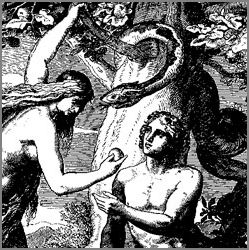Dear Editor:
I think a brief response is in order to this Sunday’s cover
essay in the NYT book review, The Novel’s
Evil Tongue by Cynthia Ozick. The
gist of Ozick’s essay is to suggest how all
of literature is somehow derived from the impulse to gossip, which in turn can
be traced right back to the serpent’s blandishments to Eve in the Garden of
Eden to eat of the Tree of Knowledge. So
Ozick concludes – “The instant Eve took in that awakening morsel of serpentine gossip,
Literature in all its variegated forms was born.” You can read the rest of Ozick's essay here.
Oh please. I have enjoyed Ozick’s short stories from time to time, and this essay too is
written with her usual flair. But talk
about wrapping yourself up in self-justificatory myth. In this case Ozick pulls
the coverlet down over her eyes and better judgment, as she tries to draw a
direct line from the opening chapters of Genesis on down the line through the entirety of world of literature, briefly touching down on Austen and Proust and a few of her other
favorites, to establish all of literature’s direct descent from Biblical
creation myth.
The problem, of course, is that this is a completely myopic
view of literature, closed off from the slightest attempt at understanding or
accounting for literary traditions other than our own. There are more things in heaven and earth, and
in literature too, than are dreamt of or carried around in our own cultural baggage.
Has Ozick ever heard of Bhagavad Gita, I wonder, or Li Bai
or Haruki Murakami, for that matter? I
thought by now the NY Times Book Review would be well beyond promoting such a
limited conception of what literature is or means. For those who are curious to learn about
traditions other than those derived from our favorite serpent, I would direct
your readers’ attention to the wonderful compendium Readings in Chinese Literary Thought by Stephen Owen, which
provides a very cogent explanation of how one great literary tradition (truly as
vast as ours) has evolved from creation myths and world views entirely different
from our own.
Joe Lamport
http://www.lampoetry.com

No comments:
Post a Comment